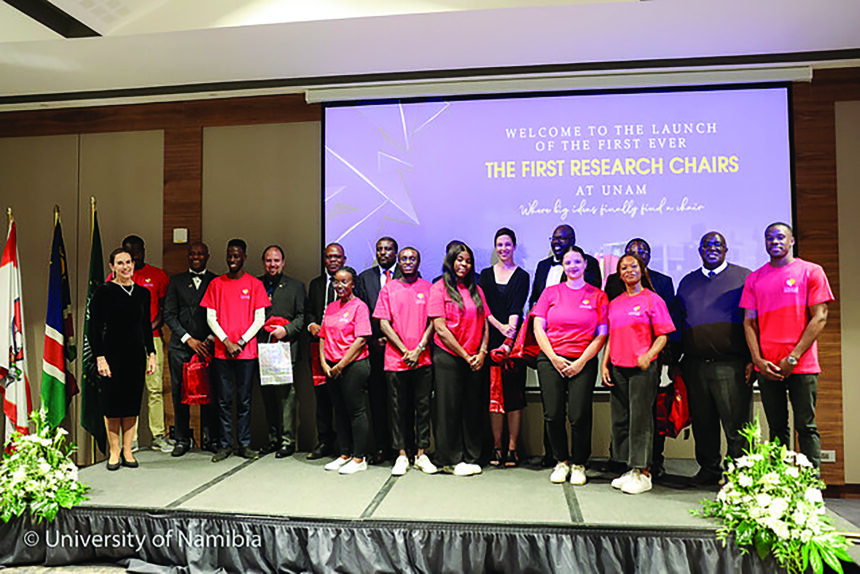The deputy chairperson of the University of Namibia’s Research and Innovation Society Shepherd Nyambe believes research is the backbone of development, and that it provides evidence-based solutions to societal challenges.
Research drives innovation, informs policy, and empowers communities through knowledge, he added.
Nyambe stated that when Namibia is positioning itself for global competitiveness, particularly in fields like energy, health and technology, research becomes not just important, but essential.
“As the deputy chairperson of the Unam Research and Innovation Society and a research enthusiast, I joined this society to help cultivate a culture of inquiry and innovation among students,” he stated this week during the launch of the university’s research chairs.
The university unveiled a team of researchers, each designated to lead a specialised area of inquiry focused on real-world solutions. They will spearhead targeted research efforts, mentor emerging scholars, and pursue funding opportunities to support knowledge-creation.
Nyambe said their role is to bridge the gap between theory and real-world application, nurturing the next generation of thought leaders and change-makers.
The launch of Research Chairs signifies Unam’s bold commitment to scholarly excellence, and it’s an honour for them to witness and support this transformative journey. Another member of the society, Vyshalani Mouton, said research is essential because it drives innovation, solves real-world problems, and contributes to national and global development.
“As a final-year student, being part of the Research and Innovation Society allows me to grow intellectually, collaborate with peers and contribute meaningfully to knowledge creation that benefits both our university and wider society,” stated Mouton.
Urimuna Kakujaha said: “Research is the backbone of progress. It helps us ask the right questions, seek meaningful answers, and come up with solutions that improve everyday life.”
He added that whether it’s tackling social issues, improving health systems or exploring new technologies, research helps people understand the world better and make informed decisions. “It’s how we grow, not just as individuals, but as a society.”
He joined the society because he wanted to be part of something bigger than himself. It is for him a space where he can connect with others who are passionate about learning, sharing ideas and making a difference. Kakujaha said being a member allows him to grow, contribute to meaningful conversations, and actively participate in shaping a better future for communities and the country. He added that it’s not just about academic growth, but also about being inspired, staying informed and giving back.
Another member, Jessica Musuuo, believes that research is important in the sense that it generates new knowledge, solves problems and improves practices across all fields of human activity.
“Being part of the society will allow me to develop leadership skills, gain exposure to cutting-edge topics, and contribute to meaningful change,” she noted.


